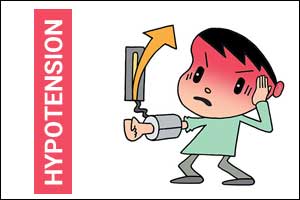- Home
- Editorial
- News
- Practice Guidelines
- Anesthesiology Guidelines
- Cancer Guidelines
- Cardiac Sciences Guidelines
- Critical Care Guidelines
- Dentistry Guidelines
- Dermatology Guidelines
- Diabetes and Endo Guidelines
- Diagnostics Guidelines
- ENT Guidelines
- Featured Practice Guidelines
- Gastroenterology Guidelines
- Geriatrics Guidelines
- Medicine Guidelines
- Nephrology Guidelines
- Neurosciences Guidelines
- Obs and Gynae Guidelines
- Ophthalmology Guidelines
- Orthopaedics Guidelines
- Paediatrics Guidelines
- Psychiatry Guidelines
- Pulmonology Guidelines
- Radiology Guidelines
- Surgery Guidelines
- Urology Guidelines
Case report of New type of Acute Hypotensive Transfusion reaction- AHTR

Two cases of a new type of post-transfusion reaction, known as acute hypotensive transfusion reaction (AHTR) have been reported. Uzung Yoon and colleagues at Department of Anesthesiology, Thomas Jefferson University Hospital, Philadelphia, USA have reported the cases which have appeared in American Journal of Case Reports.
Hypotension that occurs following transfusion can be caused by acute hemolysis, contamination of blood products, an anaphylactoid reaction, or anaphylaxis. In these cases, hypotension usually responds well with supportive management. But a new type of reaction Acute hypotensive transfusion reaction (AHTR) has been witnessed in the instant cases.
Acute hypotensive transfusion reaction is characterized by the abrupt onset of hypotension immediately after the start of transfusion and usually resolves when transfusion ceases. Recent studies have shown an association with pre-operative treatment with an ACE inhibitor.
According to history, a 68-year-old woman underwent lumbar fusion surgery due to spinal stenosis and an 86-year-old man underwent a pancreaticoduodenectomy (Whipple’s procedure). Both patients had been treated pre-operatively with ACE inhibitors for hypertension.
During surgery, both patients experienced acute profound intraoperative hypotension immediately after transfusion of packed red blood cells (RBCs). The blood transfusion was stopped immediately, and hemodynamic support was given with epinephrine, ephedrine, and phenylephrine. A diagnosis of acute hemolytic transfusion reaction was excluded by the direct antiglobulin test, serum hemolysis testing, exclusion of blood group mismatching, and a post-transfusion antibody screen.
Other causes of hypotension were excluded. The two patients were confirmed t have had an AHTR, based on the current Centers for Disease Control and Prevention (CDC) criteria. In both cases, discontinuation of surgery was not possible, and surgery continued with intermittent hemodynamic support provided with catecholamines and vasopressin.
Learning Points:-
- AHTR is a diagnosis of exclusion, based on laboratory and clinical findings.
- Antibody-mediated acute hemolytic transfusion reaction and any other causes of hypotension should be excluded as rapidly as possible.
- Patients who are at high risk of intraoperative bleeding might benefit from cessation of ACE inhibitors pre-operatively.
For further reference log on to
DOI: 10.12659/AJCR.910642

Disclaimer: This site is primarily intended for healthcare professionals. Any content/information on this website does not replace the advice of medical and/or health professionals and should not be construed as medical/diagnostic advice/endorsement or prescription. Use of this site is subject to our terms of use, privacy policy, advertisement policy. © 2020 Minerva Medical Treatment Pvt Ltd